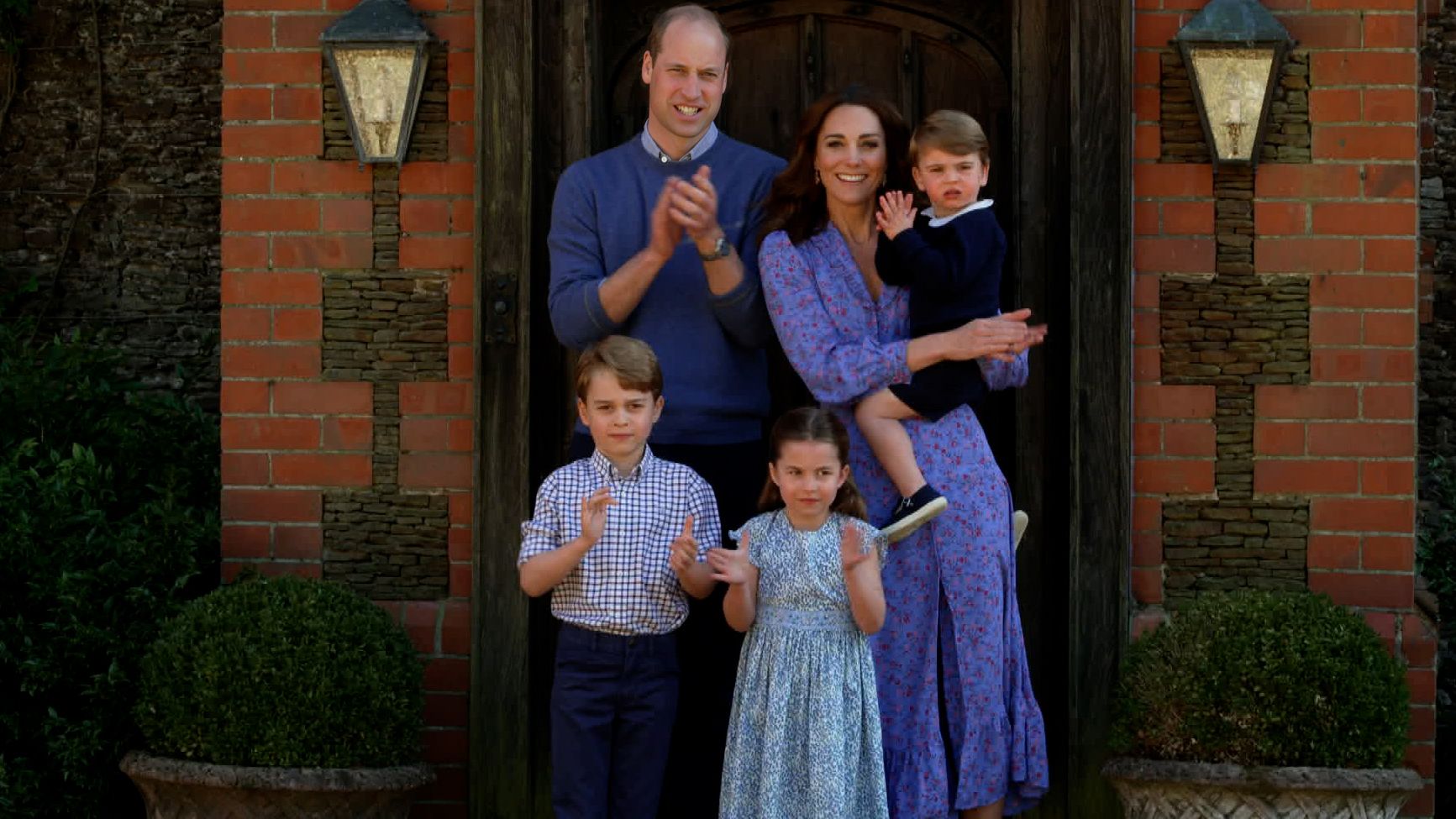The Shark Tooth David Attenborough Gave to Prince George Has Sparked Controversy in Malta
After Attenborough gave George a prehistoric shark tooth, which he found in Malta, questions were raised about whether the tooth should be returned to Malta.


- Kate Middleton and Prince William released photos over the weekend of the Cambridges meeting environmentalist David Attenborough.
- Attenborough gave Prince George a prehistoric shark tooth, which he found in Malta in the 1960s.
- Maltese culture minister José Herrera raised questions about whether the tooth should be returned to Malta.
When Kensington Palace released photos of the Cambridges meeting David Attenborough over the weekend, they revealed a gift given by Attenborough to Prince George: a prehistoric shark tooth from the long-extinct Carcharocles megalodon. "Sir David found the tooth on a family holiday to Malta in the late 1960s, embedded in the island’s soft yellow limestone which was laid down during the Miocene period some 23 million years ago," a post on the official @kensingtonpalace Instagram account read.
The gift, however, has sparked controversy, with Maltese officials questioning whether the tooth was ever Attenborough's to give. Indeed, the British have a long history of claiming precious artifacts from other countries, as the Guardian notes, many obtained through colonization or plunder by "explorers." (See: the Benin Bronzes, the Koh-i-Noor diamond, and the Parthenon Marbles, among many others.)
A post shared by Duke and Duchess of Cambridge (@dukeandduchessofcambridge)
A photo posted by on
Speaking to the Times of Malta, culture minister José Herrera suggested the megalodon tooth should be returned to its country of origin. "There are some artefacts that are important to Maltese natural heritage, which ended up abroad and deserve to be retrieved,” he said, as the Guardian reports. "We rightly give a lot of attention to historical and artistic artefacts. However, it is not always the case with our natural history. I am determined to direct a change."
Subsequently, however, Malta's culture ministry said they did not intend to pursue the retrieval of the tooth. In a statement, a spokesperson said, "The minister’s initial comments were based on the related national legislation in particular the Cultural Heritage Act, 2002 [under which the excavation or removal of fossils became illegal] which superseded the previous legislation being the Antiquities (Protection) Act of 1910 and the Antiquities (Protection) Act of 1925."
"The minister would like to note that with reference to this case, it is not the intention to pursue this matter any further," the spokesperson concluded.
RELATED STORIES


Get exclusive access to fashion and beauty trends, hot-off-the-press celebrity news, and more.

Emily Dixon is a British journalist who’s contributed to CNN, Teen Vogue, Time, Glamour, The Guardian, Wonderland, The Big Roundtable, Bust, and more, on everything from mental health to fashion to political activism to feminist zine collectives. She’s also a committed Beyoncé, Kacey Musgraves, and Tracee Ellis Ross fan, an enthusiastic but terrible ballet dancer, and a proud Geordie lass.